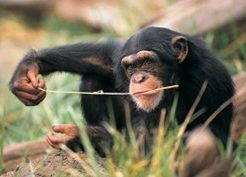 Wikipedia describes the Essenes as a mystic Jewish sect that flourished from the 2nd century BCE to the 1st century CE. The Jewish historian Josephus records that Essenes existed in large numbers but fewer in number than the Pharisees and the Sadducees, the other two major sects at the time.
Wikipedia describes the Essenes as a mystic Jewish sect that flourished from the 2nd century BCE to the 1st century CE. The Jewish historian Josephus records that Essenes existed in large numbers but fewer in number than the Pharisees and the Sadducees, the other two major sects at the time.
The Essenes lived in various cities but congregated in communal life dedicated to voluntary poverty, daily immersion, and asceticism (their priestly class practiced celibacy). The most famous one you probably know was John the Baptist who reportedly ate locusts and wild honey. We don’t know what else he ate. I would doubt this is all he ate, but he was known for being different by eating these.
It is interesting to me that we seem poised to consider doing the same these days. First of all, it is now a well-known fact that honey is an amazingly powerful food. And bees are essential for our plants’ survival due to their role as pollinators. Of course, insects are a key part of the diet in many parts of the world, in some cases even a delicacy. But here in the West, most cringe at the thought.
We seem to think we have risen to a higher standard of living because we can eat beef, lamb, lobster, etc. The idea of a cricket appetizer is just not likely to appear on any American restaurant menu.
Yet, the health benefits are undeniable. The ecological impacts are all beneficial. And, think of the devastation locusts produce if we don’t keep their populations under control. Plus, you simple dry them before consumption to store them and you can keep them for years without refrigeration.
No one I know eats ants or termites, but our ancestors probably did. Genetics tells us we and primates have common ancestors if you go back far enough and primates do consider ants and termites a delightful snack. Some animals consider ants as their primary food source.
Now, don’t get me wrong. I am not about to go buy cricket flower but you can and it gets great reviews: Cricket Protein Powder
But, if we are serious about a sustainable planet, why are we so afraid of new ideas that can wean us off our predisposition to eat the way we do now? Think of all the damage locusts do if we don’t harvest them? Plus, you do know that termites are a significant source of methane pollution … much higher than all those belching cows. You detect termites in the walls using a methane sniffer!
Yes, I am playing with you to some extent, but not completely. What are we afraid of?
By the way, people who do think about this and have lots of money are betting on this: Emerging Tech Research Food Tech Review
So, what is our problem? You do remember the prison revolt in Maine … at the time no one believed you could eat lobsters. When there was a food shortage at the prison, they served lobster resulting in a riot. The prisoners thought they were trying to kill them. When I grew up nobody ate mussels. Maybe with the passage of time, appetites will evolve to more sustainable food sources.
